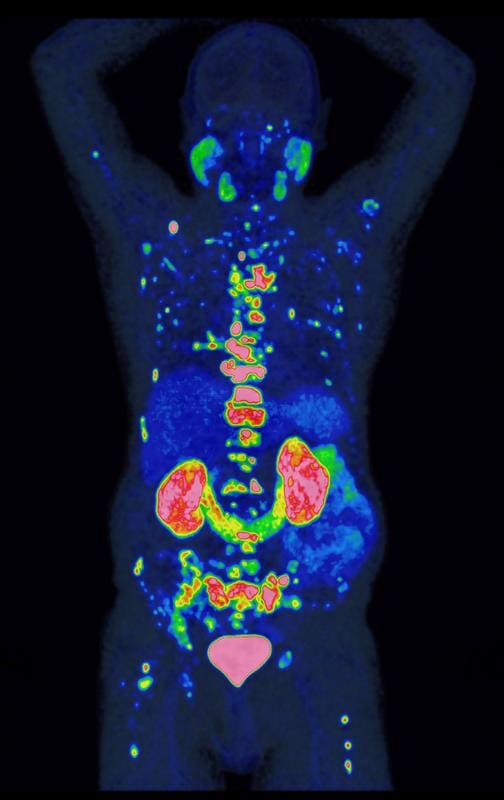Award for groundbreaking method for the prognosis and treatment of prostate cancer
The German University Medicine Award 2025 goes to the international initiative PROMISE. The research team, led by the University Medical Center Essen, developed a method to use high-precision imaging to predict the course of prostate cancer even more precisely and to control therapies more individually. The project is considered an outstanding example of international and interdisciplinary collaboration that transfers research results into clinical application in record time.
Prostate cancer is the most common cancer in men in Germany, with around 65,000 new cases every year, with around 15,000 patients dying in 2020, and about one in eleven men will develop it in the course of his life. It is a challenge for physicians to correctly assess the course of the disease at an early stage and depending on the aggressiveness and to choose a suitable therapy. In order for this to succeed, it is necessary to communicate the findings and the individual risk in an understandable way.

For the risk assessment, the PROMISE team used PSMA-PET, a state-of-the-art imaging technique that can be used to visualize prostate cancer cells with particular precision and their stage of spread in the body. Since the method is more sensitive than older procedures, its findings first had to be translated into new treatment recommendations ŌĆō a process that PROMISE has significantly shaped. In one of the largest studies worldwide, the team evaluated image data from over 15,000 patients. Together with leading international research institutions, it developed the PROMISE scheme ŌĆō a method that can be used to determine individual risk profiles on the basis of PSMA-PET much more precisely. Based on this, nomograms were created, i.e. predictive models for the individual risk, which are prepared in an understandable way for doctors and patients and can be used for joint therapy decisions.
Particularly impressive: the rapid transfer of research results into clinical practice. Just a few months after publication, the new models were included in the German S3 guideline for prostate cancer and form the authoritative recommendation for treatment for physicians. The method is now also considered a standard internationally.
Read more:
PROMISE Standardized Reporting of PSMA-PET in Prostate Cancer
Editor: X-Press Journalistenb├╝ro GbR
Gender Notice. The personal designations used in this text always refer equally to female, male and diverse persons. Double/triple naming and gendered designations are used for better readability. ected.




